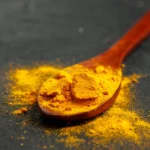Introduction :
In our busy lives, even minor health issues like headaches, bloating, or seasonal colds can throw us off track. While over-the-counter medicines offer quick relief, they often come with side effects that can take a toll on our overall well-being. That’s why more and more people are rediscovering the power of natural remedies a safe, gentle way to address common health concerns.

Nature has always been our ally, offering simple yet effective solutions for various ailments. From calming an upset stomach with a warm cup of ginger tea to relieving stress with the soothing scent of essential oils, these remedies don’t just provide relief—they also help restore balance and harmony to the body and mind.
We’ll share 10 natural remedies that you can easily incorporate into your routine. Whether you’re dealing with a stubborn cold or a sleepless night, these tips will help you feel better the natural way. Let’s dive in and embrace the healing power of nature.
10 Natural Remedies for Everyday Health Issues.
Dealing with minor health problems doesn’t always require a trip to the pharmacy. Many common issues can be addressed with natural remedies using simple ingredients and techniques. Here’s a list of 10 easy and effective remedies you can try at home.
Ginger for Upset Stomach :

Ginger is a natural powerhouse when it comes to soothing digestive discomfort. Whether it’s nausea, bloating, or indigestion, sipping on ginger tea or chewing a small piece of raw ginger can help calm your stomach and improve digestion.
Honey and Lemon for Cough and Sore Throat:

This classic combination is a natural remedy for soothing a sore throat and suppressing coughs. Honey coats the throat, while lemon provides a dose of vitamin C to boost immunity. Mix them in warm water for instant relief.
Turmeric for Inflammation:

Turmeric, with its active ingredient curcumin, is a natural anti-inflammatory agent. Adding a pinch of turmeric to warm milk or tea can help reduce joint pain, swelling, or even combat a mild fever.
Peppermint for Headaches:

If you’re dealing with a headache, try inhaling peppermint essential oil or massaging it onto your temples. Its cooling properties can help relax tense muscles and ease the pain.
Aloe Vera for Minor Burns and Skin Irritation:

Aloe vera is nature’s balm for the skin. Applying fresh aloe gel to minor burns, sunburn, or itchy skin can provide quick relief and promote faster healing.
Garlic for Colds and Flu:

Garlic is packed with antiviral and antibacterial properties. Eating raw garlic or adding it to your meals can help fight off colds, reduce congestion, and strengthen your immune system.
Chamomile for Better Sleep:
Struggling with sleepless nights? A cup of chamomile tea before bed can help calm your mind and promote a restful sleep. Its natural sedative properties make it a popular remedy for insomnia.
Cucumber for Puffy Eyes:
Cucumbers aren’t just for salads—they’re great for tired, puffy eyes too! Placing cool cucumber slices over your eyes can reduce swelling and refresh your appearance in minutes.
Apple Cider Vinegar for Heartburn:
A teaspoon of apple cider vinegar mixed with warm water can help balance stomach acid and ease heartburn. It may seem counterintuitive, but this remedy works wonders for many people.
Eucalyptus for Stuffy Nose:

Inhaling steam with a few drops of eucalyptus oil can clear nasal congestion and make it easier to breathe. This simple remedy is especially effective during cold and allergy seasons.
FAQ :
1. Are natural remedies safe for everyone?
Natural remedies are generally safe and gentle, but it’s essential to consider individual allergies, sensitivities, and health conditions. For example, people allergic to pollen should avoid chamomile, and those on blood-thinning medication should consult a doctor before using turmeric. Always listen to your body and seek professional advice if needed.
2. Can natural remedies replace medications?
While natural remedies can effectively manage minor health issues, they are not a substitute for prescribed medications, especially for serious conditions. These remedies work best as complementary care or for temporary relief of everyday ailments.
3. How quickly do natural remedies work?
The effectiveness of natural remedies varies from person to person. Some, like peppermint oil for headaches, may offer instant relief, while others, like turmeric for inflammation, may take longer to show noticeable effects. Patience and consistency are key when using natural remedies.
4. Are these remedies suitable for children?
Many natural remedies are safe for children, but adjustments in dosage or preparation might be necessary. For example, honey should not be given to children under one year old due to the risk of botulism. Always consult a pediatrician before trying new remedies for kids.
5. Can I combine multiple remedies?
Yes, many natural remedies can complement each other. For instance, you can pair ginger tea with honey for an upset stomach or combine eucalyptus steam with garlic in meals during a cold.
6. Where can I find the ingredients for these remedies?
Most ingredients, like ginger, turmeric, and aloe vera, can be found in your kitchen or local grocery store. Essential oils and herbal teas are widely available at health stores and online. Growing a small herb garden at home is another way to have fresh ingredients readily on hand.
7. Are there any side effects of using natural remedies?
Although natural remedies are usually mild, they can still cause side effects if used improperly. For example overuse of apple cider vinegar can harm tooth enamel, and essential oils can irritate the skin if not diluted. Always use remedies in moderation and follow guidelines for safe use.
8. How do I know if a natural remedy is working?
Pay close attention to your symptoms and overall well-being. While some remedies offer quick relief, others may require consistent use over time. If symptoms persist or worsen, it’s a sign to seek professional medical advice.
9. Can I use natural remedies daily?
Yes, many natural remedies, like chamomile tea for relaxation or turmeric in cooking, can be part of your daily routine. However, remedies like apple cider vinegar should be used in moderation to avoid potential side effects.
10. What should I do if a natural remedy doesn’t work?
Not all remedies work the same for everyone. If a particular remedy doesn’t provide relief, consider trying another approach or consulting a healthcare professional. Your body’s needs are unique, and finding what works best may take a bit of exploration.
Conclusion:
In today’s fast-paced world, it’s easy to overlook the simple, natural solutions that can help us feel better. These remedies, rooted in nature and tradition, remind us that healing doesn’t always have to come from a bottle. By embracing natural methods, we not only address everyday health issues but also nurture a deeper connection with our body and the world around us.
Whether it’s sipping a warm cup of chamomile tea for better sleep or using aloe vera to soothe irritated skin, these small, mindful choices can make a big difference. Natural remedies empower us to take charge of our health in a gentle and holistic way.
As you explore these remedies, remember to listen to your body and give it the care it truly deserves. After all, good health isn’t just about curing ailments it’s about creating harmony between the mind, body, and soul.
<head><script async src=”https://pagead2.googlesyndication.com/pagead/js/adsbygoogle.js?client=ca-pub-3317204152971892″
crossorigin=”anonymous”></script></head>